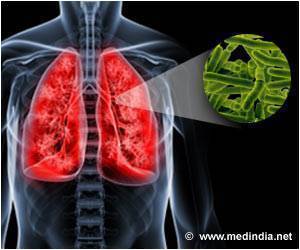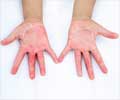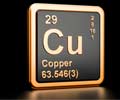Bacteria deposited on a surface by one person touching it, or via contaminated body fluids, can be picked up by subsequent users and spread to other surfaces.

TOP INSIGHT
Copper targets various cellular sites, not only killing bacterial and viral pathogens, but also rapidly destroying their nucleic acid genetic material so there is no chance of mutation.
"Exposure to copper damages the bacterial respiration and DNA, resulting in irreversible cell breakdown and death," Warnes noted. Touch surfaces made from solid antimicrobial copper are already used by hospitals, schools, mass transit hubs, sports facilities and offices around the world to reduce the spread of infections.
"It is important to understand the mechanism of copper’s antimicrobial efficacy because micro-organisms have evolved various mechanisms to convey resistance to disinfectants and antibiotics," study co-author Bill Keevil from the University of Southampton, pointed out.
"Our work shows that copper targets various cellular sites, not only killing bacterial and viral pathogens, but also rapidly destroying their nucleic acid genetic material so there is no chance of mutation occurring and nothing to pass on to other microbes, a process called horizontal gene transfer," Keevil explained. "Consequently, this helps prevent breeding the next generation of superbug," Keevil said.
Source-IANS
 MEDINDIA
MEDINDIA




 Email
Email









